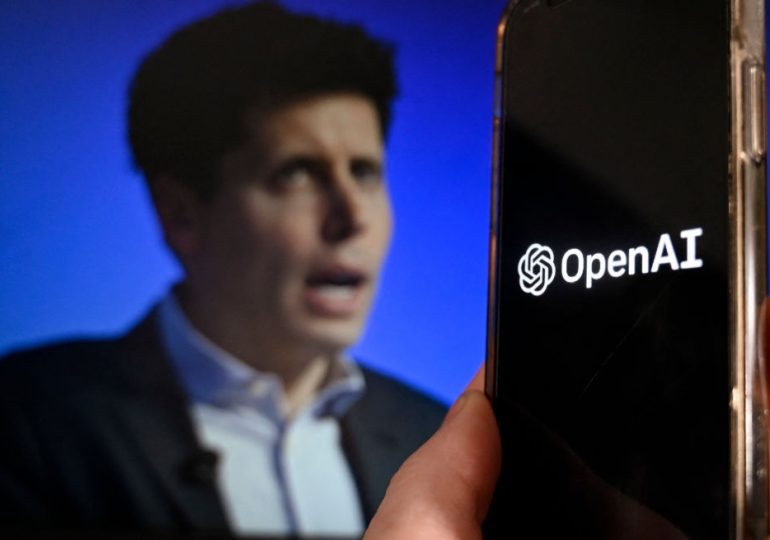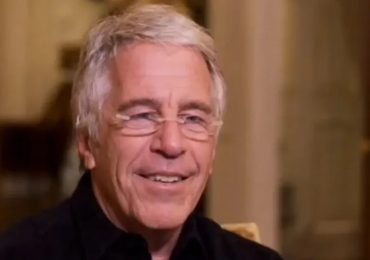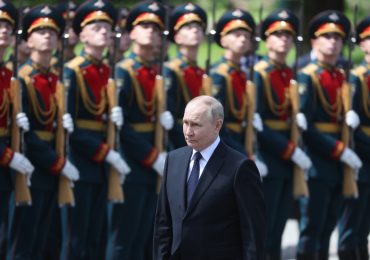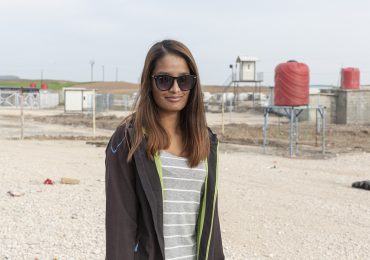Recently Jon Stewart did a segment poking satire at the promises of AI highlighted by tech CEOs. I don’t think automating your toasters is the best way to show the potential of AI, as Jon did, but I do agree with the central premise of his argument that disruption caused by AI will be harnessed to prioritize profits over people. It will likely cause one of the largest and fastest labor displacements in human history.
[time-brightcove not-tgx=”true”]
I run an AI company based in Silicon Valley focused on solving climate change, and I am a former policymaker for the government of India. At the World Economic Forum Davos 2024, my discussions with media, heads of state, and CEOs of Fortune 500 companies underscored global perspectives on AI, where AI was widely discussed to unlock the next productivity revolution, foster wealth creation, and uplift people out of poverty by democratizing and reducing the cost of access to information/education. Most of the risk conversations for AI focused on AI’s extinction risk and the regulatory guardrails we needed to hedge against that future. My conversations about political and societal risk coming from the biggest labor displacement from AI were met with skepticism even by my community of fellow AI founders.
The reality is what we are witnessing through AI is a force that multiplies the pace of structural displacement of labor. As an example, the internet era and globalization enabled US firms to outsource customer support to developing countries such as India, Vietnam, and Thailand at the expense of the middle class in some U.S regions; now, a chatbot developed on an LLM enterprise stack is proving to be more/equally effective as humans in the customer support making them redundant. This impact will be even more severe in high-income countries. A recent report by the IMF mentioned that closer to 60% of jobs will be impacted by AI, likely leading to an increase in inequality. Half of them will benefit, but the other half will made redundant/less effective, leading to lower wages, reduced purchasing power, and a lower standard of living in an inflationary era.
These labor displacements accumulate over time, impacting mostly the lower and middle classes and, in turn, becoming political movements. In the U.S., the wave of globalization and automation in the last 30 years created the most disruptive political movement, resulting in the election of Donald Trump. However, this time, disruption is also coming for some white-collar workers, which makes its effects unknown and potentially more dangerous.
Typically, the debate on AI’s impact on labor hinges on two arguments. One is more of a binary argument from some economists that there will be both job creation and destruction and that the net impact will be positive. Further, the workers who will lose jobs can be retrained/reskilled into newer categories of jobs that will be created and enabled by redistribution of wealth.
The second argument is that the overall promise of AI in areas such as education and research more than ethically compensates for the negative impact on society through job losses. This argument is made by the founder/investor community, who quickly point out the tech marvels of the internet boom, such as smartphones, and its impact on connecting billions in emerging economies such as India.
The first argument assumes that the pace of one dislocation—job losses in one region/sector—will be less than the pace at which reskilling can happen and that wealth redistribution is fair and smooth. America made the same assumption about the renewable energy transition for coal mining workers and thus became one of the few large economies where climate change became a polarizing issue. To wit, on wealth re-distribution, the share of the top 20% in the U.S. rose from 61% in the 1990s to 71% in 2022.
The second argument assumes that education equals job readiness, as I have seen in my home country India, where 80% of 1.5 million engineers graduating every year are considered unemployable for any job in the knowledge economy. Further in the hierarchy of needs, having a smartphone rarely takes precedence over having a decent job and an affordable meal for the family. Secondly,
This brings me to the uncomfortable truth of accepting our responsibility as AI founders to decide the course of this transformation along with the governments. Our obsession with profitability has often led us to focus more on applications such as creating more intelligent chatbots to replace customer support or sales reps rather than the most challenging yet purposeful problems for humanity, such as improving productivity for smallholder farmers in the developing world or solving cancer.
Secondly, we need to work with governments and regulators to ensure that some of the wealth created in this process is redistributed fairly and equitably. As an example, we can co-fund the creation of NGOs such as Coalfield Development. This community-based non-profit engages coal miners who couldn’t transition into renewable energy jobs by helping them acquire construction, agriculture, and solar installation skills.
Third, governments can learn lessons from Norway’s efforts to ensure the fair redistribution of wealth created by the oil boom in the 1970s. Norway established the Government Pension Fund Global (Norwegian Oil Fund) in 1990 to steward oil revenues for future generations, aiming for economic stability through global diversified investments. It now has the second lowest inequality in the world.
A lack of action now is a path towards a future that magnifies the political, social, and environmental crises we have seen in the last three decades. However, the world will still see more billionaires than ever before and possibly the world’s first AI trillionaire in the next decade.
Leave a comment








